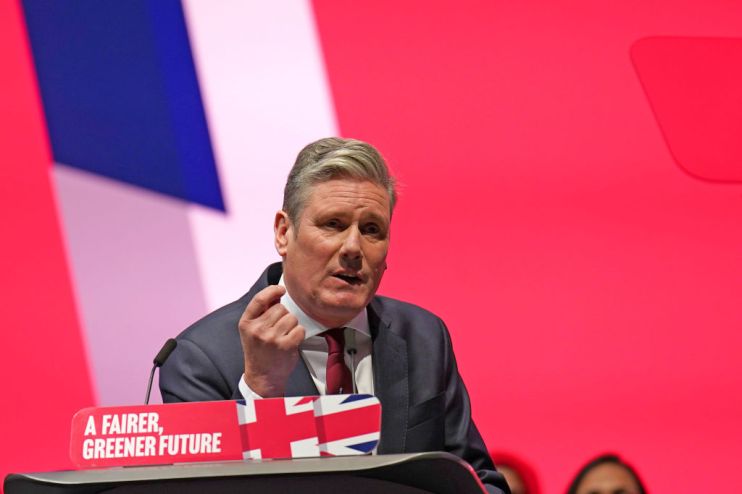The Notebook: Michael Martins on why Labour must face up to a Trump presidency

Where voices from the City get a few things off their chest. Michael Martins, former US Embassy London political and economic specialist, takes the pen.
Labour can no longer ignore difficult foreign policy choices
A week or so ago, I attended a Labour think tank reception where a shadow secretary of state spoke about how the UK can defeat climate change. Throughout the discussion, the speaker and numerous members of the audience praised the US Inflation Reduction Act, even as it shifts demand, investment and jobs from the UK to the US and which earlier that day, former President, and likely Republican nominee for President in 2024, Donald Trump, pledged to rip up immediately, should he win next year’s election.
When asked how Labour would respond to a potential Trump presidency, who will likely view Labour’s industrial strategy with scepticism if not outright hostility, the shadow secretary, surprised me by saying he had no plan and did not want to think about it because it would be a catastrophe. This struck me as a bold foreign policy strategy, even for a drinks reception.
Although Labour has spent the better part of a year rightly rebuilding their credibility and networks within UK Plc, at a certain point they will have to come up with a foreign policy stance that is not just “leave as little daylight between the current UK government or President Biden’s as possible.” A quarter of Labour MPs rebelled against Sir Keir Starmer’s whip on the motions regarding a ceasefire in the Gaza strip last month. If there is a change in US administration and in the occupier of No 10, both of which currently seem the most likely outcome in 2024, Starmer will have to make hard foreign policy choices that he will then have to sell to Labour MPs, party members, and UK Plc.
It is one thing to exert your authority when you lead by 20 points in the polls after thirteen years in opposition, but it will be another to maintain collective responsibility and pass legislation if in power, especially if divisive issues such as the Israel/Palestine conflict continue to rule.
License to vape
I recently discovered that selling nicotine does not require licensing, and that
if a retailer is caught selling vapes to underage consumers, they might be fined. With fewer than ten fines handed out over the last few years, banning will probably have even less chance of enforcement. Licensing, where fees go to the NHS rather than black market criminals and where potential trade frictions between Northern Ireland and the EU or the rest of the UK are avoided, seems like a better idea than the government’s current approach.
Bright light in the North Sea
As political parties bicker over energy exploration licenses in the North Sea, the North Sea regulator estimates that over 2,000 wells will eventually need to be decommissioned, while more than half of the 270 current projects are set to go offline by 2030. Although some politicians would rather O&G workers up sticks and move to “work in renewables,” some shrewd workers have started to pivot into the decommissioning space. As a high value-add manufacturing sector with exportable global know-how, guaranteed demand, and a tendency to lower public costs, politicians would do well to champion this industry.
UK space sector taking off
The UK hosts most of Europe’s space launch sites and some of the world’s most sophisticated space industry clusters. Aside from a sector that lends itself almost excessively easily to puns, the UK’s space sector also contributes nearly £20bn to the economy, and, as the dual use capability of space becomes increasingly important during conflicts in Europe and the Middle East, UK-based space companies are set to thrive. The government has started to notice, recently partnering up with private companies to invest nearly £100m in space R&D – over to you, Labour.
What I’m reading this week
I have been waiting for a book like Daniel Mason’s North Woods for a very long time. I moved to London from Toronto, or, more specifically, from a home where my family were original occupants to a series of rooms and flats that are usually older than Canada’s statehood. I have therefore often thought about the series of memories and lives that have transpired in my flat that I will never know about and how the same will be true of whoever takes over from me when I move on. Mason takes this idea and builds a historical novel set over centuries in one plot of land, later a house, in Massachusetts and follows the characters that come and go, ranging from twin sisters to a cougar.